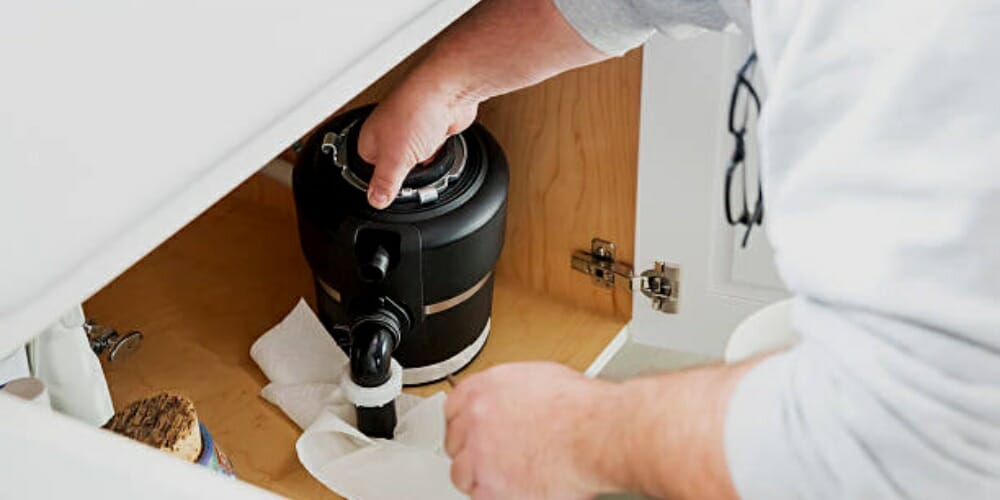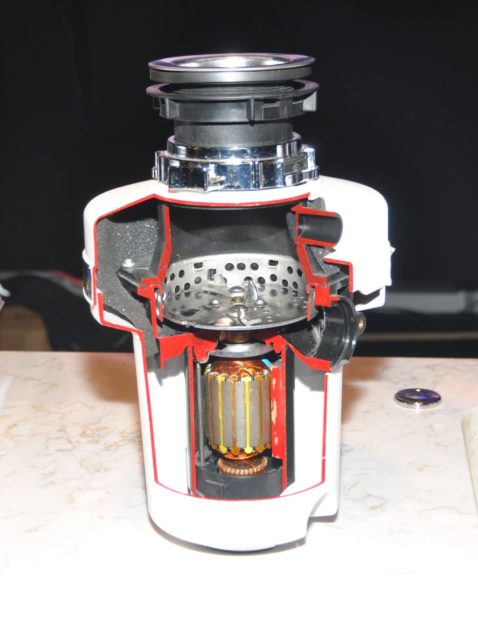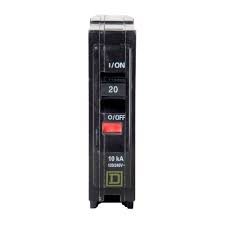Does a Garbage Disposal Need a Dedicated Circuit? (Guide)

Today, we’re diving deep into kitchen conveniences: garbage disposals. But here’s the burning question I hear from folks always: “Does a garbage disposal need a dedicated circuit?”
Not every disposal needs its dedicated circuit. If it’s under 1HP, you’re usually good to go sharing a circuit. But, if you’ve got a 1HP beast, keep it running smoothly on a 15-amp circuit. More than 1HP? Give it its 20-amp circuit to avoid any hiccups. Simple, right? Keep those disposals humming without a worry!
Note: This chart assumes the wattage of all appliances on the circuit.
| Wattage | Circuit Requirements |
|---|---|
| Less than 500 watts | No dedicated circuit required |
| 500-1000 watts | No dedicated circuit is required |
| 1000-1500 watts | No dedicated circuit is required |
| 1500-2000 watts | Dedicated circuit recommended |
| More than 2000 watts | Dedicated circuit required |
I’m here to help you understand the electrical requirements of your garbage disposal. Trust me, with the right information and some know-how, you’ll make informed decisions about your kitchen setup in no time. Let’s get into it!
How a Garbage Disposal Works
A garbage disposal breaks down leftover food into fine particles.
Its grind ring does this. It liquefies the food. After the food is ground through the grind ring, water flushes the particles out of the garbage disposal and into the wastewater pipeline. Importantly, all this requires electricity to work.
A garbage disposal is a canister with a compartment for the waste food and a motor at the bottom that spins an impeller plate.

How Do You Know If You Need a Dedicated Circuit?
Now that you know how a garbage disposal works, do you need to arrange a dedicated circuit?
Without a Dedicated Circuit
Without a dedicated circuit for your garbage disposal, you might, for instance:
- Not be able to run your garbage disposal at the same time as your dishwasher.
- You will be unable to operate your vacuum cleaner without tripping the circuit.
If these scenarios seem familiar, you should have a dedicated circuit for your garbage disposal, as with other major high-powered appliances.
In short, two high-powered appliances should not be used on the same circuit, so don’t try to use them simultaneously.
What Happens if a Dedicated Circuit is Not Installed?
Major high-powered appliances used concurrently without a dedicated circuit are extremely dangerous, as they can draw high currents, which a non-dedicated circuit cannot handle.
Using a shared circuit puts your life at risk, as the wiring can overheat and cause the insulation to break down, eventually causing a fire within your walls.
Benefits of Using a Dedicated Circuit
Dedicated circuits come in handy to prevent electrocution and fire from an overload.
Dedicated circuits are designed to give your major appliances a protection layer so they might not get damaged by high electrical currents. If you want to be careful while using your electrical appliances and want to run them simultaneously, you should consider arranging a dedicated circuit.
In short, a garbage disposal needs a dedicated circuit to function safely if it is high-powered or runs with many other appliances.
How Many Amps Does a Garbage Disposal Operate On?
Now that you are probably convinced of the need for a dedicated circuit and know that arranging for one is the best option for your garbage disposal, you will need to know how many amps it operates on.
The answer is that a garbage disposal rated at least 1HP needs a 15- 20 amp dedicated circuit. Sharing a 20-amp circuit with another appliance, such as a dishwasher, might be fine, but not with a high-powered appliance running together.
To be safe, a dedicated circuit is a better option if the unit is rated over 1HP. However, the amperage varies depending on your garbage disposal size and type.

That’s why it is necessary to check the manual for this information, which usually comes with the appliance, or you can discuss it with the electrician appointed to install your garbage disposal.
Does a Garbage Disposal Need a GFCI and AFCI?
The National Electrical Code (NEC) does not require that garbage disposal be protected by a GFCI (Ground Fault Circuit Interrupter).
Nevertheless, there might be a requirement stated in the installation manual that your particular garbage disposal needs GFCI protection, which is designed to prevent electrocution. Mostly, they are installed in those areas where there is a threat of the electrical circuit being exposed to water. It is possible that the electrical circuit in a garbage disposal can come into contact with water, so a GFCI is used as a safety measure.
An AFCI is designed to function as an arc fault, interrupting the flow of electricity and causing quick trips. This helps prevent an electrical system from causing an explosion or a fire hazard. An AFCI is also used in garbage disposals to prevent an arc fault from causing a fire hazard.
More Tips for Using a Garbage Disposal
If you want your garbage disposal to last long, you must do more than arrange a dedicated circuit.
All electrical appliances need some regular maintenance. So does garbage disposal. Here is a round-up of some more important measures you can take when using your garbage disposal:
- Do not put large quantities of food in a garbage disposal. Only put food into the disposal in small quantities at a time. If the food scrap is too large, you can cut it into pieces before disposal.
- Avoid solid or non-food items. Never put anything in the garbage disposal if it is not food or water, such as water bottles, cans, or other non-food items. It could damage the garbage disposal or get stuck inside the waste pipeline.
- Bones are too hard for garbage disposal, and they can harm their blades, so throw them in the trash can instead.
- Keep the water running a little longer. After disposing of the garbage, flush the water approximately 30 seconds after turning it off. Add cold water, which helps harden the fat and grease, allowing them to move freely through the waste pipeline. Warm water can be used when the garbage disposal is switched off.
- Use cold water frequently. Clean the garbage disposal regularly. It might seem like a hassle, but it will help ensure its longer life.
Frequently Asked Questions
- Do I Need a Pro to Install My Garbage Disposal?
- Yes, if you’re not confident with plumbing and electrical work. No, if you’re experienced with DIY projects. Always consider safety and code compliance.
- How Much Does Garbage Disposal Installation Cost?
- Costs vary. DIY installation is cheaper. Replacing an old unit costs less than a full new installation. Prices increase with professional help and new circuit requirements.
- How Do I Maintain My Garbage Disposal?
- Run water during use. Avoid hard and fibrous items. Clean regularly with cold water and dish soap. Use ice cubes for blade maintenance and citrus peels for freshness.
- Does My Garbage Disposal Need Its Circuit?
- If under 1HP, maybe not. For 1HP or higher, yes, to avoid overloads. Always check with an electrician for your setup.
- When Should I Replace My Garbage Disposal?
- Typically after 10 years or sooner if it clogs often, performs poorly, or smells bad despite cleaning. Loud noises and frequent resets are bad signs.
- Can I Use a Garbage Disposal With a Septic Tank?
- Yes, but choose a disposal designed for septic systems. Use it sparingly to avoid overloading your tank.
- Is Running Hot Water Through My Garbage Disposal Okay?
- Use cold water during grinding to solidify fats and oils and prevent clogs. Hot water is fine for cleaning after use.
Resources
Organizations
- National Electrical Manufacturers Association (NEMA) – https://www.nema.org/
- Environmental Protection Agency (EPA) – https://www.epa.gov/home
- National Fire Protection Association (NFPA) – https://www.nfpa.org/en
Books
- “Wiring a House” by Rex Cauldwell – https://books.google.com/books/about/Wiring_a_House.html?id=anbv0BWVfeQC
- “Black & Decker The Complete Guide to Wiring, Updated 7th Edition” – https://books.google.com/books/about/Black_Decker_The_Complete_Guide_to_Wirin.html?id=c95HDwAAQBAJ
Organizations
- This Old House – https://www.thisoldhouse.com/
- The Family Handyman – https://www.familyhandyman.com/
